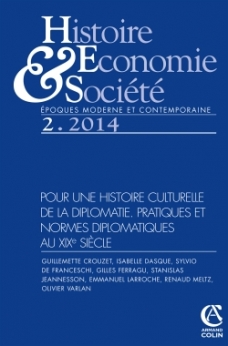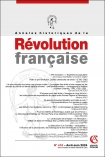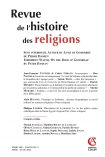
Histoire, économie & société (2/2014)
Pour acheter ce numéro, contactez-nous
Recevez les numéros de l'année en cours et accédez à l'intégralité des articles en ligne.
Un premier système médiatique s’organise à partir des années 1830, en Europe occidentale, autour de la presse écrite. La politique étrangère y tient une place primordiale. L’opinion, nouvelle actrice des relations internationales, revendique la publicité de la diplomatie et s’érige en instance de jugement. Cette opinion se fait entendre, sous différentes formes sociales, pour réclamer une politique étrangère morale, face à un État libéral qui se cantonne à la sphère de ses intérêts. Cette exigence d’une politique bonne et, partant, universelle, favorise l’émergence d’une opinion publique internationale, partageant des valeurs. Naturellement, cette OPI demeure à la mesure de l’étroit espace public européen. Le propos de cet article est de montrer que, contre le sentiment et les discours des décideurs, l’affirmation de l’opinion publique dans les affaires internationales a produit des effets principalement iréniques. La meilleure connaissance réciproque a permis d’apprivoiser la culture médiatique adverse serait-ce dans l’affrontement verbal. En défendent la paix entre nations civilisées d’égale dignité, contre le bellicisme d’État, les opinions publiques françaises et anglaises ont même participé à l’invention de la notion d’arbitrage : le tribunal informel de l’opinion a préfiguré, en somme, la judiciarisation de la société internationale. L’opinion publique a également revendiqué une démocratisation de chaque État, et de leurs relations, au bénéfice de la paix. L’appel à une diplomatie des peuples, affilié aux projets de paix hérités de Kant, dépassait-il la notion d’opinion en proclamant le refus des peuples d’être opposés entre eux, posture consubstantielle au refus d’être privé, pour chacun d’entre eux, de la maîtrise des questions de politique étrangère.
A first media system gets organized from the 1930’s, in the Western Europe, around the written press. The foreign policy has an essential place in it, allowing the public opinion to seize international affairs. This new actor of the international relations claims the advertising of the foreign policy and establish itself as a judgment authority ; indeed, it considers itself the main moral resource of the country and its power‘s founding principle. This opinion makes it heard to claim a moral foreign policy, in front of a liberal state whose main interests are its own. This demand of a good and universal policy promotes the emergence of an international public opinion, sharing values. This initiation stays in the tight European public space. The aim of this article is to show that, against the decision-maker’s feeling, the assertion of the public opinion in international affairs has mainly generated peace effects. The best mutual knowledge has allowed taming the opposite media culture. Fighting for peace between civilized nations of equal dignity, against the State warmongering, the French and English public opinion have participated to the invention of the mediation concept : as a matter of fact, the informal tribunal of the opinion prefigured the judiciarization of the international society. The public opinion has also claimed a democratization of each state, and of their relations, for peace. In this way, the call to a diplomacy of the peoples, affiliated to the peace project inherited from Kant, has been exceeding the notion of an opinion proclaiming the refusal of the people to be opposed between them, consubstantial place to the refusal to be private, for all of them, of the command of the foreign policy questions.

